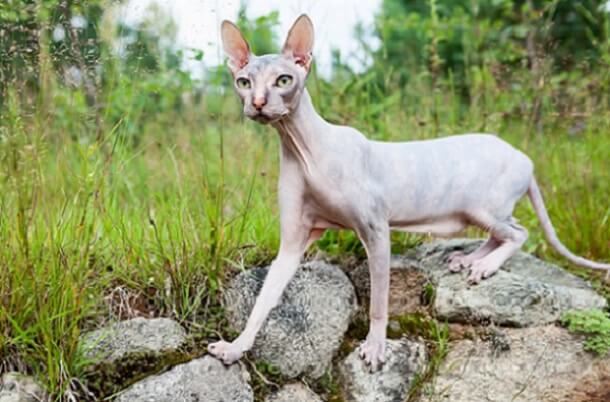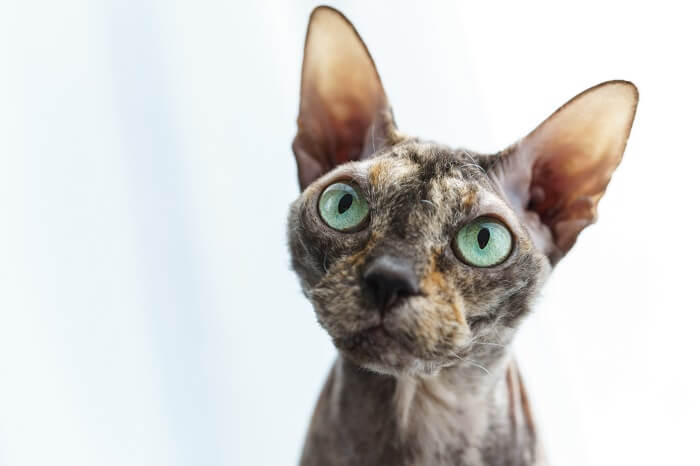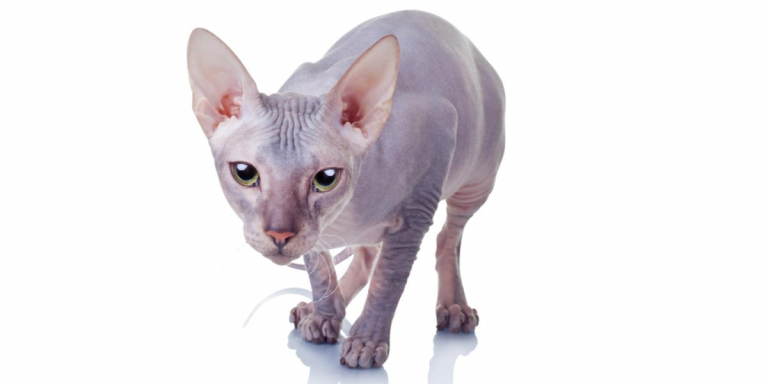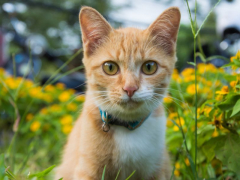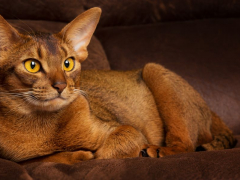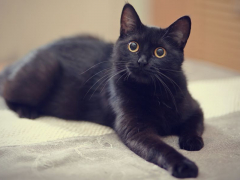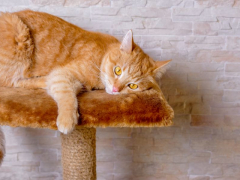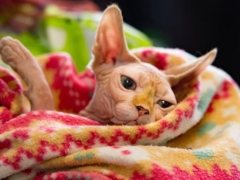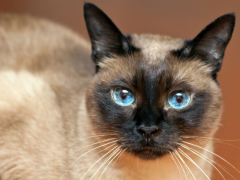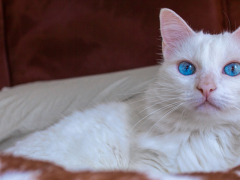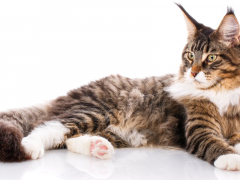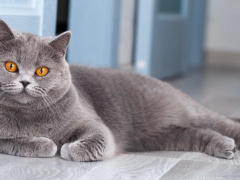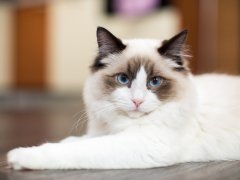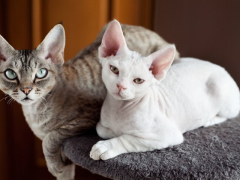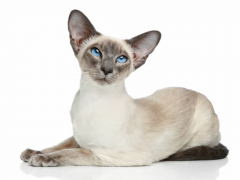Personality and Temperament
Also known as the Russian Hairless or Don Sphynx, the Donskoy cat is a playful, affectionate companion with a reputation for cuddling up with family members - particularly during the cooler months!
Donskoy cats are even-tempered individuals, well-known for their ability to make friends with anyone who seems interested. Their sociable, friendly nature makes them ideal for families with kids and other pets.
The Don Sphynx / Donskoy cat comes with a mischievous side and a built-in sense of curiosity. Climbing, opening cupboards, and investigating the contents of bags and boxes are just a few special talents displayed by these adorable, intelligent felines that resemble Sphynx.
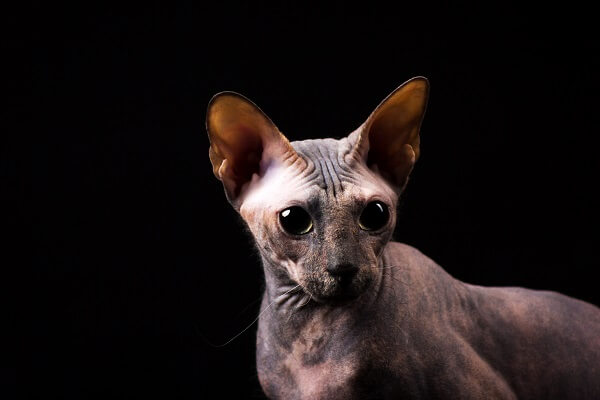
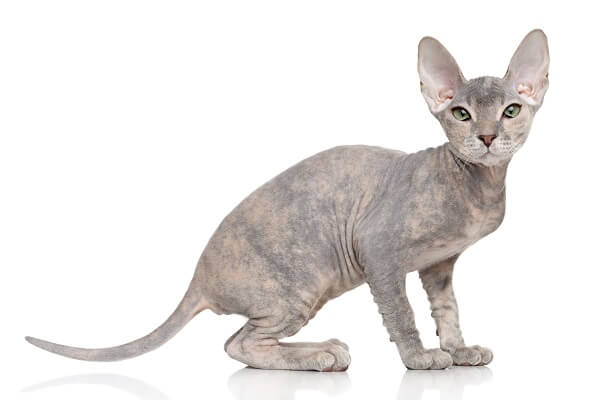
Care
Nutrition
Grooming
Exercise
Health
The Donskoy cat has no special nutritional requirements; however, they do need high-quality food and will benefit from additional omega-3 fatty acid to promote healthy skin.
Even though Donskoy cats are nearly free of hair, they're not without maintenance. They require bathing to prevent excess oil buildup, and they may require occasional ear cleaning. In addition, you'll want to teach your cat to accept tooth brushing and nail trimming from a young age.
These kitties are muscular and athletic, with a strong desire to jump and run. A cat tree is a must-have! In addition, Donskoy cats love their toys and appreciate interactive play sessions with their people.
Donskoy cats are robust and healthy, but there are concerns over the dominant genetic mutation that causes the breed's lack of hair. It is sometimes associated with poor dentition and a rare condition called feline ectodermal dysplasia.
If you bring a Don Sphynx into your family, you'll want to watch for issues with skin - usually, problems are caused by bathing too often or not frequently enough.
These Russian hairless cats (and all other hairless breeds) need to be protected from the elements as they are prone to sunburn. They cannot tolerate cold temperatures.
History
The first foundation member of this rare cat breed was first encountered in Russia in 1987 when a professor named Elena Kovaleva rescued a kitten that was being mistreated by a group of boys.
The kitten was partially hairless, leading Elena to attempt all kinds of treatments in an effort to restore it's coat - but to no avail. After some time, the cat, now named Varvara, had a litter of kittens that included some with hair and some without hair. Those born with hair soon lost part or all of their coats, and it was determined that Varvara had a genetic mutation rather than a skin disease.
One of Varvara’s hairless kittens was adopted by a professional breeder named Irina Nemikina, who is credited with creating the Donskoy cat breed as we know it today.
The World Cat Federation (WCF) granted their official recognition in 1997 and The International Cat Association (TICA) officially recognized the Don Sphynx cat breed in 2005, registering it under the name ‘Donskoy.’
